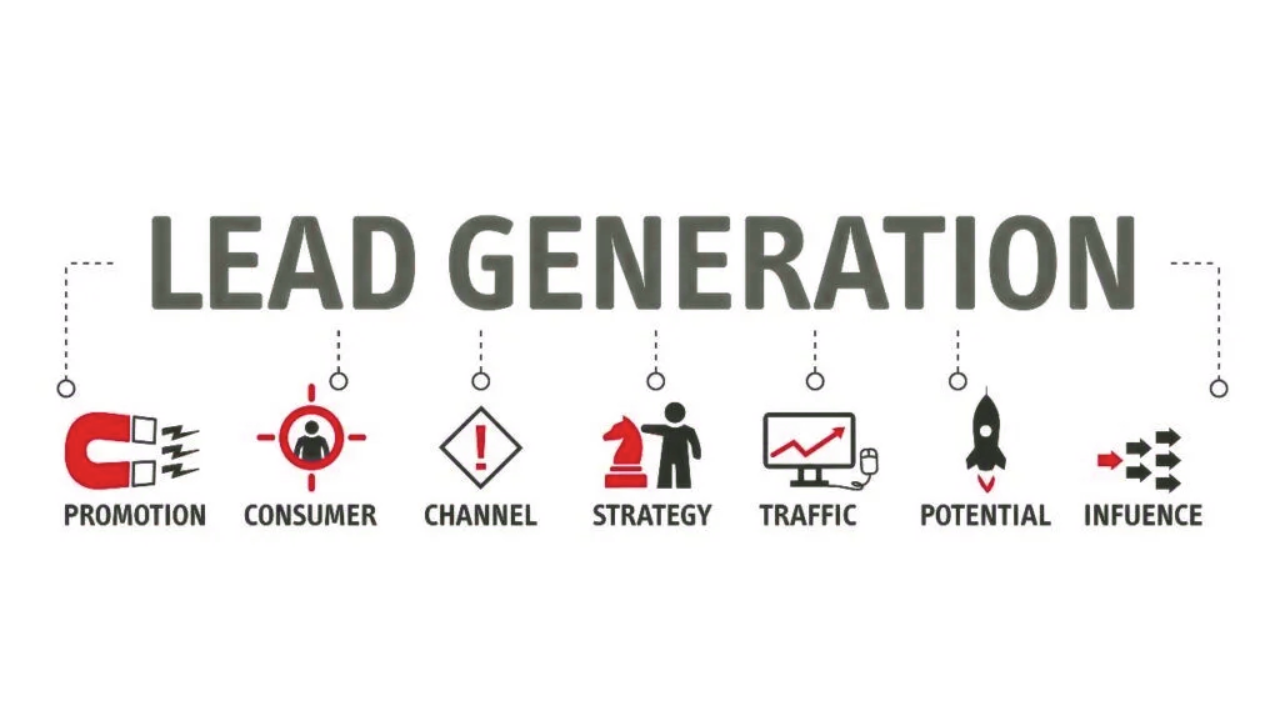Effective Strategies for Lead Generation in Real Estate
The real estate market is tough these days. Obviously, buyers constantly search for their ideal property. It might be a luxury home. Perhaps a commercial space. Or even an investment plot. Everyone wants great deals. However, the biggest challenge is finding serious buyers. Therefore, this is exactly where lead generation strategies become crucial. Through effective lead generation, businesses can connect with high-intent customers. Moreover, digital marketing for real estate leads makes this process smoother. In addition, it helps target the right audience. Furthermore, it provides measurable results. Therefore, mastering lead generation in real estate is essential for success in today's competitive market. Undeniably, without proper real estate lead generation, even the best properties remain unsold.
In this blog, we will show you how to get quality leads through smart digital marketing for real estate leads.

1. Why Digital Marketing is Essential for Lead Generation in Real Estate?
Old marketing still works sometimes. However, it's expensive. In addition, results are hard to track. In contrast, lead generation in real estate online reaches the right people easily. Moreover, you can track results. Thus, you can make quick changes.
Many people search homes online now. Therefore, Google and social media are top search tools. By using digital marketing for real estate leads, you can:
Reach high-intent buyers
Reduce cost per lead (CPL)
Improve conversion rates
Track and analyze marketing performance
Optimize campaigns for better ROI
Subsequently, let's look at top ways to get leads for real estate through digital marketing for real estate leads.

2. Google Ads: The Best Platform for High-Intent Leads
a) Why Google Ads Work for Real Estate?
Google is where most buyers search. Who plans home purchases? Often people aged 35-45. Usually married. Typically with families. They're either looking now or deciding soon. Thus, Google Ads and YouTube Ads work great in generating leads for real estate.
b) Keyword Targeting for Google Ads
To get quality leads for real estate, you need good keywords. Here are smart keyword types:
Transactional Keywords – "Buy 3 BHK flat in Mumbai," "Luxury villas in Bangalore".
Project-Specific Keywords – Use names of new housing projects.
Competitor Keywords –Target people checking competitor projects.
c) Landing Page Optimization
Many agents make one big mistake. Specifically, they send visitors to main websites. Instead, use special pages. A good landing page needs:
Clear property details (pricing, location, amenities).
Engaging visuals and videos.
A strong call-to-action (CTA) like "Book a Site Visit".
Contact forms with minimal fields to increase conversions.
3. Lead Generation in Real Estate: Overcoming Common Challenges
Digital marketing for real estate leads works well. Yet, there are hurdles:
a) High Cost Per Lead (CPL)
In metro cities like Mumbai, Gurgaon, and Bangalore. Leads for real estate cost ₹5000-₹6000 each. So, focus on long-tail keywords
Optimize ad campaigns regularly
Use remarketing to re-engage website visitors
b) Fake Clicks & Competitor Attacks
Rivals often click your ads. Consequently, this wastes your money. Fortunately, tools like ClickCease help. As a result, they can cut fake clicks by 55%.
c) Google Ads Suspension Issues
Google often blocks real estate ads. Therefore, follow all rules. Also, don't bid too fast.
4. Meta (Facebook & Instagram) Ads for Real Estate
a) Targeting the Right Audience
Facebook and Instagram are great for lead generation in real estate. With Meta Ads, you can target:
Users by location, income, and interests
Homebuyers based on life events like "Recently Married"
People who have visited property-related websites
b) Engaging Ad Creatives
Buying homes is emotional. To attract buyers, use:
High-quality images and videos showcasing the property
Virtual tours to enhance engagement
Offers & incentives, such as free site visits or discounts
c) Retargeting & Lead Nurturing
Most people don't buy right away. Consequently, reminder ads are key. Besides, they bring people back to your site.

5. The Role of a Strong Sales Team
Getting leads for real estate is just step one. After that, you need a good sales team. The buying journey has steps, these are:
First, the lead fills out a form on the website.
Then, the sales team contacts the lead.
Next, a site visit is scheduled.
Finally, follow-ups lead to sales.
If your team is slow, eventually even good leads for real estate disappear.
6. Emotional Marketing & Offers in Real Estate
Buying a home means more than money. Certainly, it's about feelings too. Hence, emotional ads work better for lead generation in real estate.
a) Emotional Ad Messaging
In this case, know your audience to create messages that truly resonate with them.
Families: "Give your kids a safe future."
Luxury buyers: "Live the dream life."
Investors: "Secure high returns."
b) Incentives That Work
To boost sales, offer:
Free site visits with pickup & drop-off.
Discounted booking amounts.
Gold or silver coins on booking.
Special pre-launch offers.
7. Best Time to Run Ads for Maximum Impact
New project launches are perfect for ads. During this time, builders use:
Newspaper & TV ads
Billboards & hoardings
Cinema advertising
Therefore, it creates more online searches. As a result, it's the best time for Google and Meta Ads to generate leads for real estate.

Final Thoughts: How to Generate Maximum Leads for Real Estate
For successful lead generation in real estate, follow these tips: Use Google Ads for serious buyers. Also, create special pages for each property. Run Facebook ads with great visuals. In addition, train your sales team well. Also, use emotional messages in ads.
By using these methods, real estate businesses get better results. Additionally, they turn more leads for real estate into buyers. In addition, start improving your digital marketing for real estate leads today. Consequently, stay ahead in this competitive market. Ultimately, master these strategic methods, and your business growth potential will change. Thus, there is a way for real estate companies to succeed in tough markets.